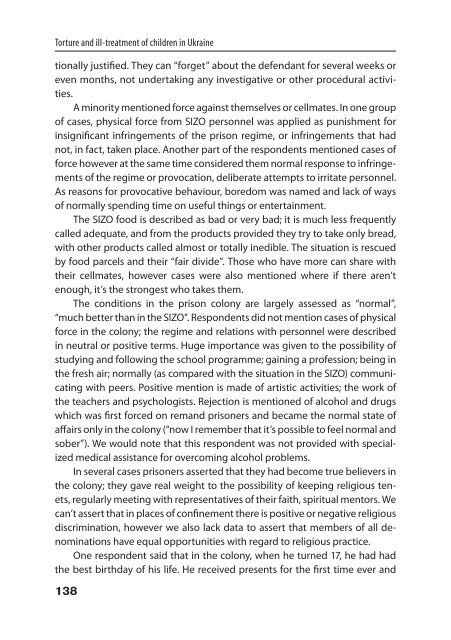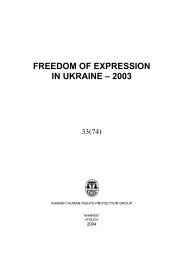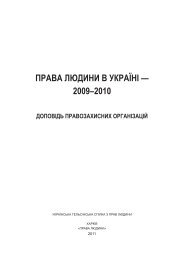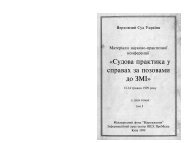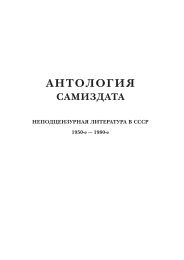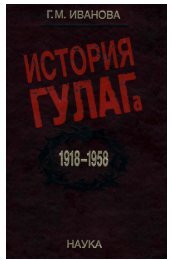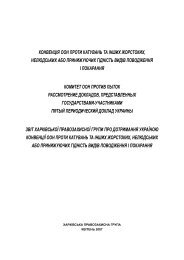TORTURE AND ILL-TREATMENT OF CHILDREN IN UKRAINE
TORTURE AND ILL-TREATMENT OF CHILDREN IN UKRAINE
TORTURE AND ILL-TREATMENT OF CHILDREN IN UKRAINE
- No tags were found...
You also want an ePaper? Increase the reach of your titles
YUMPU automatically turns print PDFs into web optimized ePapers that Google loves.
Torture and ill-treatment of children in Ukrainetionally justified. They can “forget” about the defendant for several weeks oreven months, not undertaking any investigative or other procedural activities.A minority mentioned force against themselves or cellmates. In one groupof cases, physical force from SIZO personnel was applied as punishment forinsignificant infringements of the prison regime, or infringements that hadnot, in fact, taken place. Another part of the respondents mentioned cases offorce however at the same time considered them normal response to infringementsof the regime or provocation, deliberate attempts to irritate personnel.As reasons for provocative behaviour, boredom was named and lack of waysof normally spending time on useful things or entertainment.The SIZO food is described as bad or very bad; it is much less frequentlycalled adequate, and from the products provided they try to take only bread,with other products called almost or totally inedible. The situation is rescuedby food parcels and their “fair divide”. Those who have more can share withtheir cellmates, however cases were also mentioned where if there aren’tenough, it’s the strongest who takes them.The conditions in the prison colony are largely assessed as “normal”,“much better than in the SIZO”. Respondents did not mention cases of physicalforce in the colony; the regime and relations with personnel were describedin neutral or positive terms. Huge importance was given to the possibility ofstudying and following the school programme; gaining a profession; being inthe fresh air; normally (as compared with the situation in the SIZO) communicatingwith peers. Positive mention is made of artistic activities; the work ofthe teachers and psychologists. Rejection is mentioned of alcohol and drugswhich was first forced on remand prisoners and became the normal state ofaffairs only in the colony (“now I remember that it’s possible to feel normal andsober”). We would note that this respondent was not provided with specializedmedical assistance for overcoming alcohol problems.In several cases prisoners asserted that they had become true believers inthe colony; they gave real weight to the possibility of keeping religious tenets,regularly meeting with representatives of their faith, spiritual mentors. Wecan’t assert that in places of confinement there is positive or negative religiousdiscrimination, however we also lack data to assert that members of all denominationshave equal opportunities with regard to religious practice.One respondent said that in the colony, when he turned 17, he had hadthe best birthday of his life. He received presents for the first time ever and138


